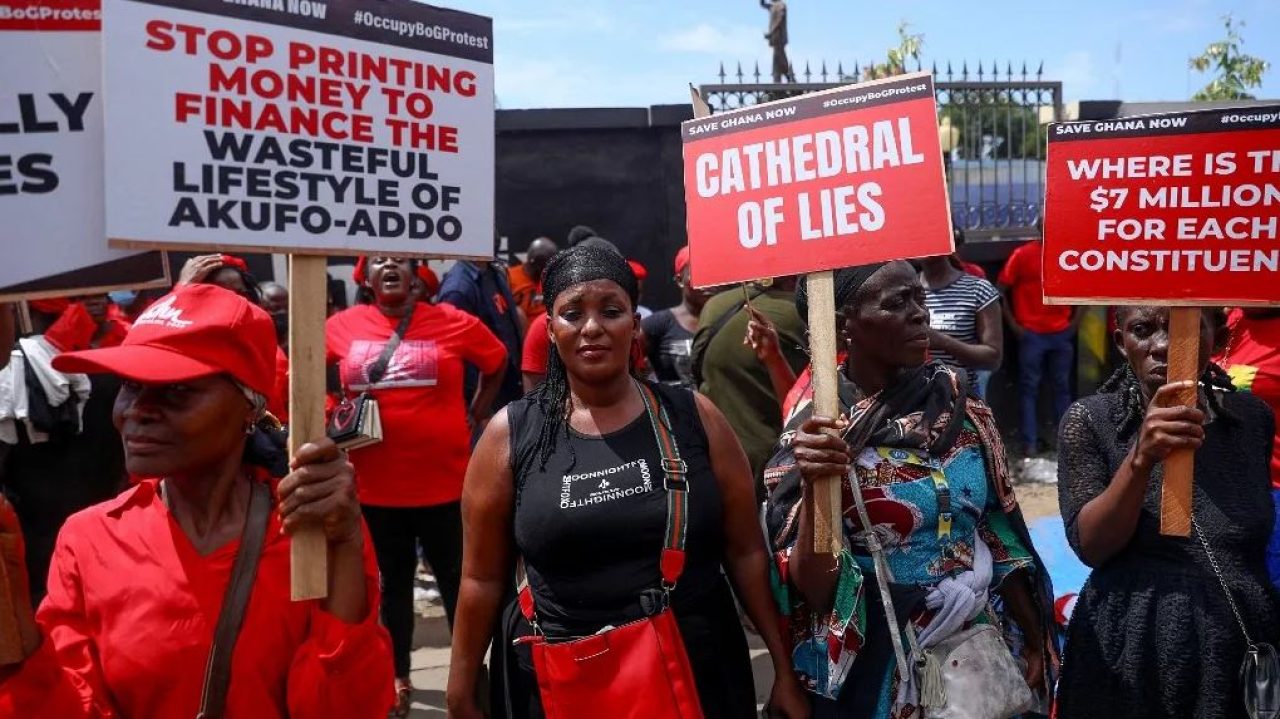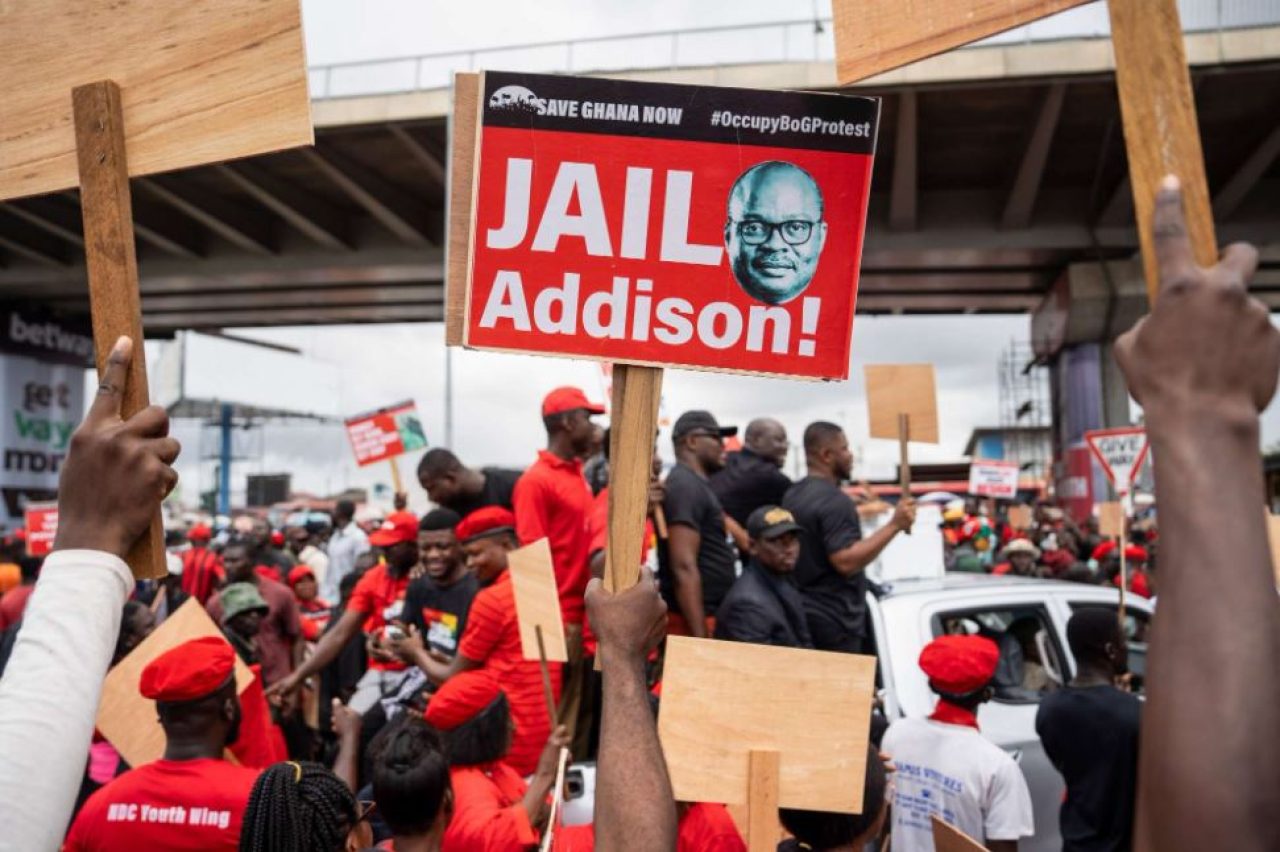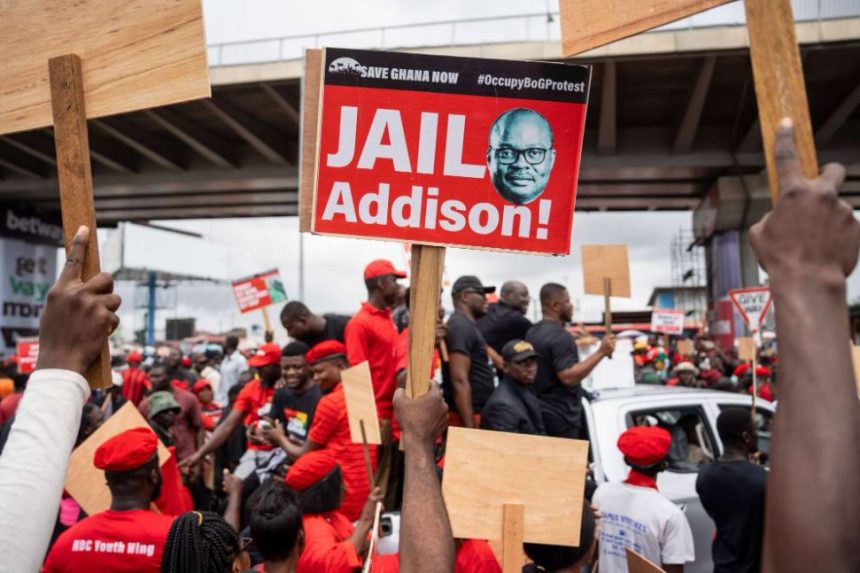On Tuesday, thousands of Ghanaians thronged Accra’s streets to demand that Ernest Addison, the governor of the central bank, be fired for mismanaging the country’s economy during a dire debt crisis.

One of the biggest economies in West Africa has been experiencing economic challenges, rising living costs, and unemployment as a result of this crisis, which has been called the worst in a generation. Last month, the metropolis was already engulfed in similar protests.
Under the careful eye of riot police, the protesters marched to the central bank’s offices while playing reggae music over speakers and chanting for the resignation of Addison and his two deputies. Many attendees wore red and black clothing to represent sadness.
Emmanuel Quarcoo, 29, who is currently unemployed, expressed his dissatisfaction, stating, “We want Addison out because he has shown us that he is not able to manage the Bank of Ghana. How can the Bank of Ghana incur such a significant loss? What are they selling?”

A record loss of 60.8 billion cedis ($5.3 billion) for 2022 was disclosed by Ghana’s central bank in July, mostly as a result of debt restructuring. Ghana, which is well-known for producing gold, oil, and cocoa, has agreed to a $3 billion, three-year loan programme with the International Monetary Fund (IMF) in response to the crisis. One requirement to access these funds is debt restructuring.
The demonstrations highlight the growing concerns and demands for accountability in the face of Ghana’s economic difficulties.





